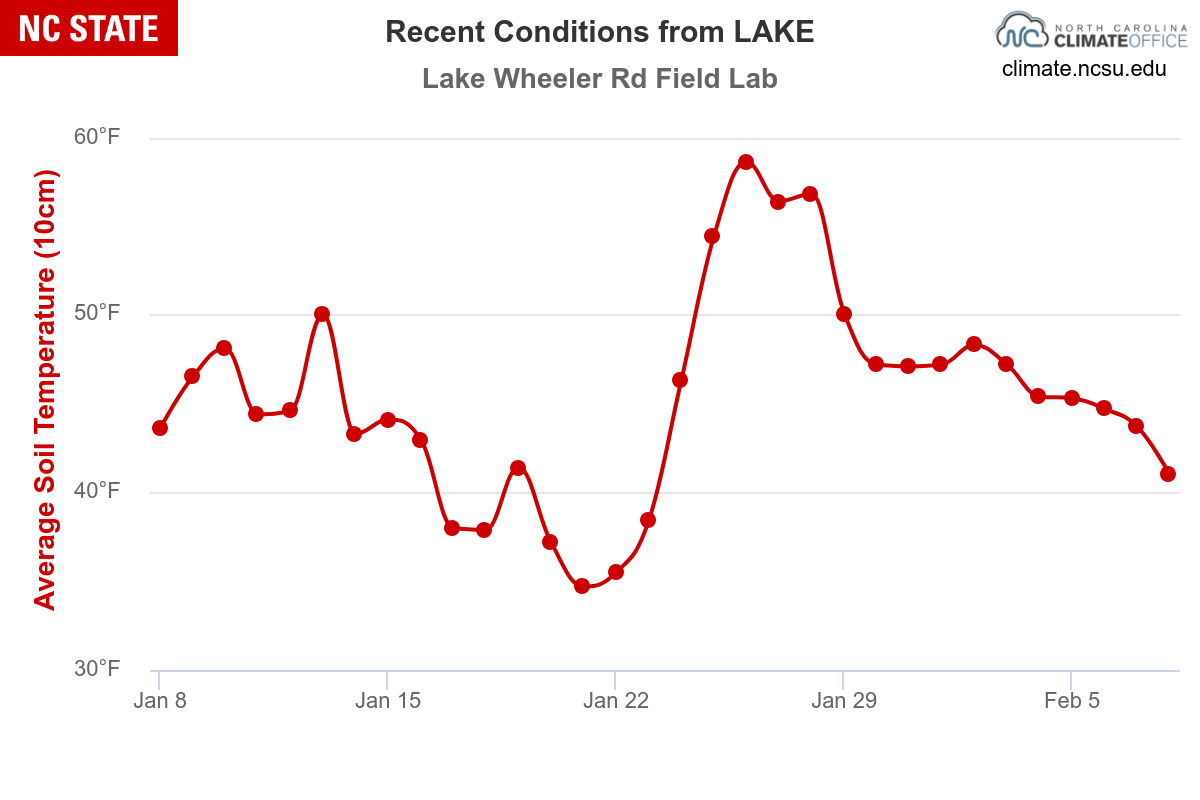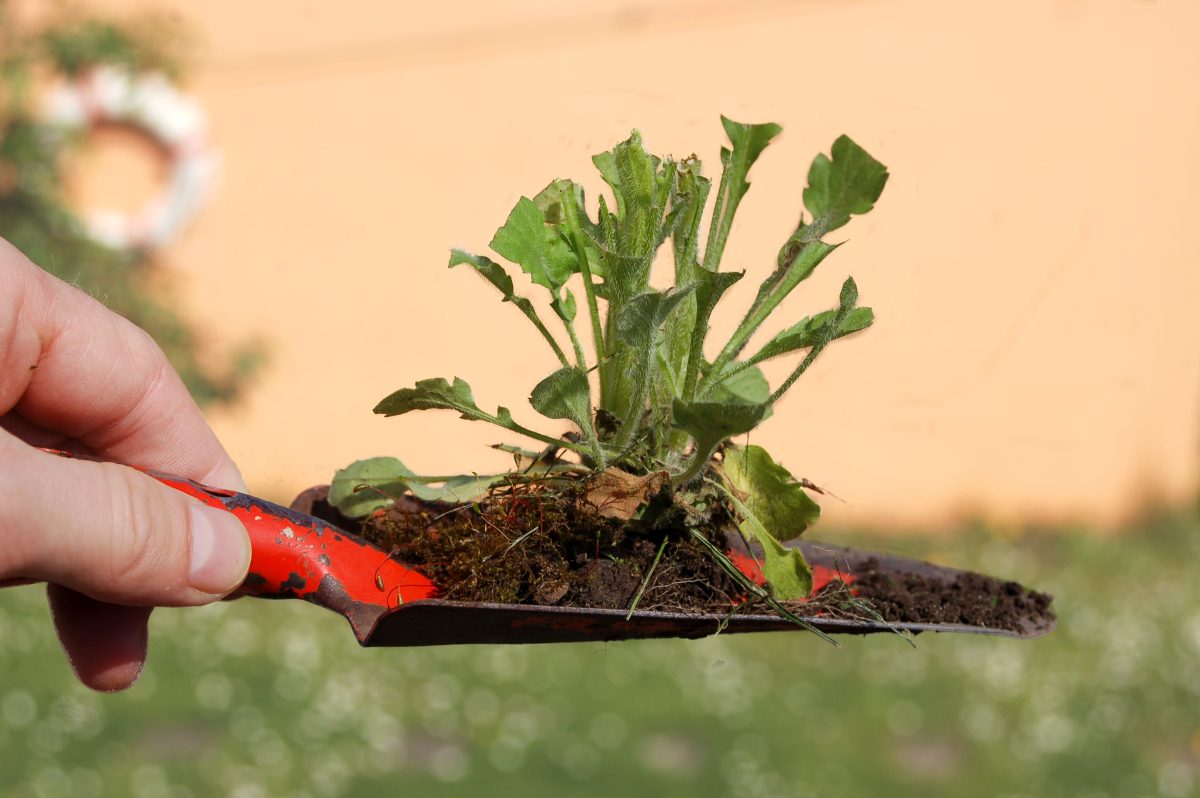Now is the time to start thinking about spring weed control planning! While you’re enjoying the fruits of your turfgrass maintenance labor (aka a quiet, low-maintenance winter dormancy period), don’t forget that spring weed control needs are just over the horizon. Just like your turfgrass, grassy and broadleaf weeds are preparing to rear their heads and create new lawn challenges.
Pre-Emergence vs. Post-Emergence Herbicides
We pulled some info from our friends at NC State Turf Files, and for those operating in North Carolina, as winter temperatures rise, so do soil temperatures. That being said, crabgrass will germinate when 24-hour mean soil temperatures average approximately 55 degrees for 3 or 4 consecutive days. See their soil temperature graph below for reference on timing on determining when to apply the appropriate weed control measures.

